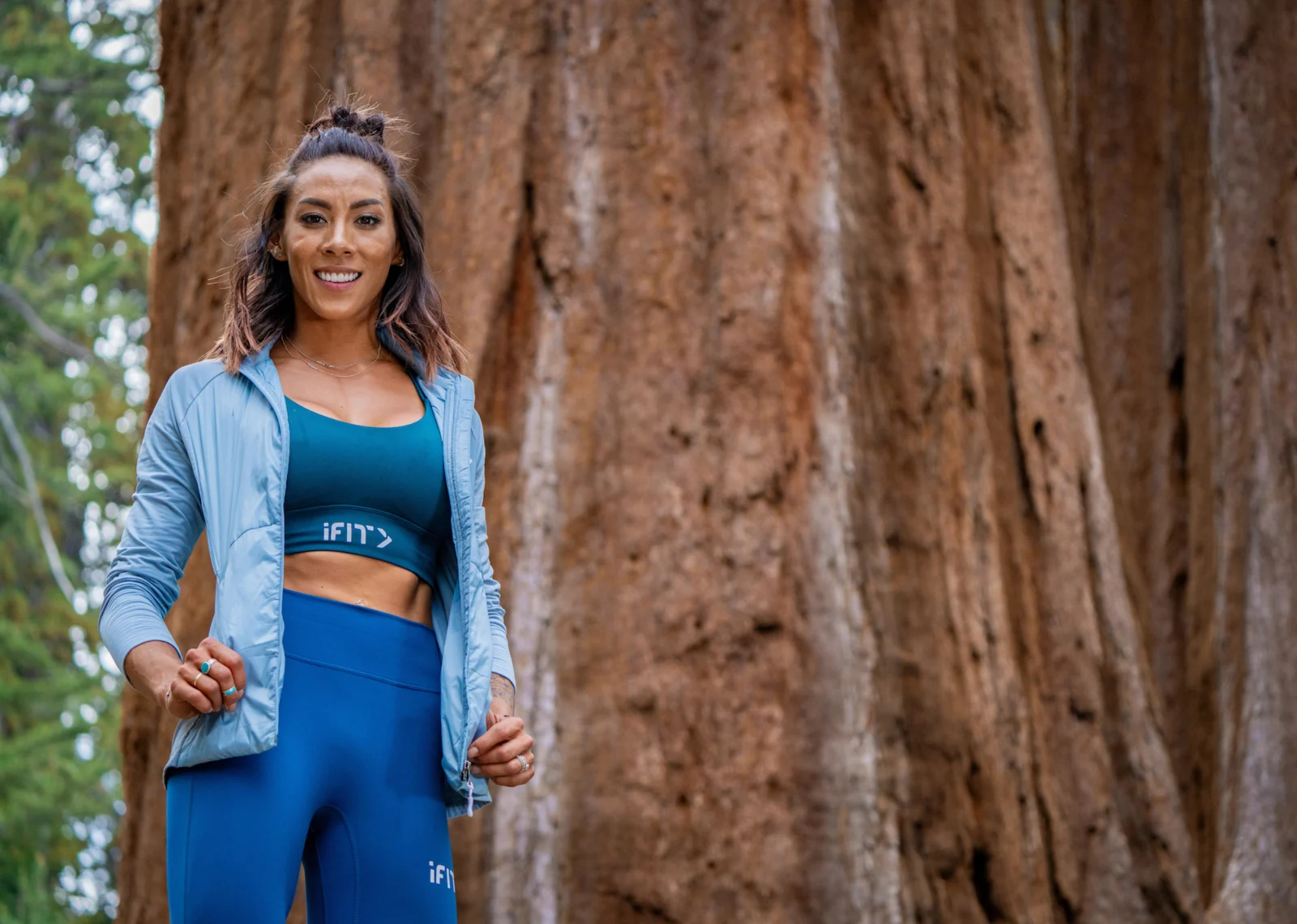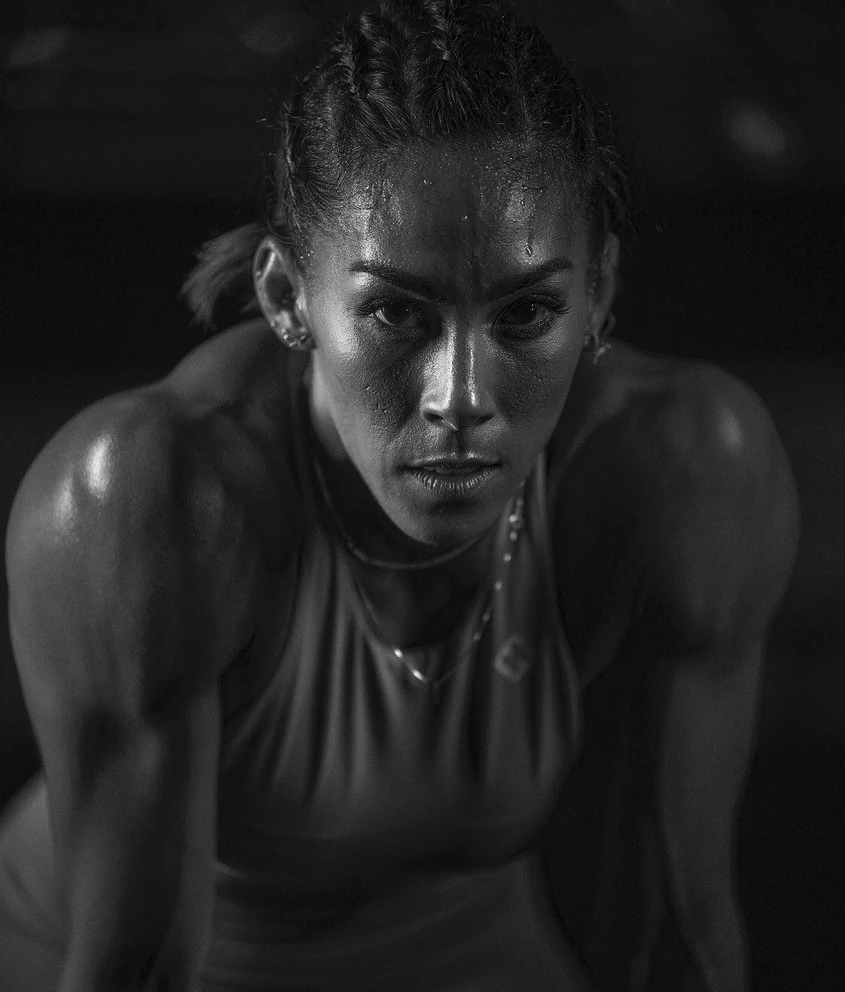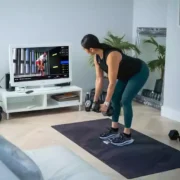Trainer Talks: iFIT’s Hannah Eden on Forging an Unstoppable Mindset

Hannah Eden brings the mentality she honed as a CrossFit Games athlete to uplift and empower as a fitness influencer and entrepreneur
Hannah Eden first made her mark as a CrossFit athlete in 2013, showcasing remarkable determination and skill. Her career took a turn in 2015 when she, alongside her husband Paulo, launched PumpFit Club, a premium boutique gym in Fort Lauderdale, Florida.
Amassing nearly 500,000 Instagram followers, Eden has successfully partnered with leading brands, harnessing her dynamic energy to inspire and motivate a global audience. She works as an iFIT and NordicTrack trainer, introduced the HEF Training App, and launched her own apparel line, FYR Apparel.
Athletech News spoke with Eden about her journey from CrossFit athlete to successful fitness entrepreneur, and her ability to use immersive training to reach people from all walks of life.
The following conversation has been lightly edited for clarity and length.
Athletech News: As a former CrossFit athlete turned entrepreneur, how has your athletic background influenced your business approach?
Hannah Eden: My entry into CrossFit was somewhat accidental, but I approached it with energy. I strongly believe in our immense capacity, and I put all of mine towards achieving the lofty goal of winning the CrossFit Games. Despite my strengths, I also had weaknesses and suffered a back injury.
By that time, I was already coaching my own classes at another gym. I had dedicated every moment to being an athlete, but then I had to face the reality that becoming a top CrossFit athlete wasn’t in my cards. I had this fitness side hustle and thought, “What if I applied as much effort to my fitness business as I did to being an athlete?”
Our first business venture was opening our gym in 2015. I had no business experience, I was just 23 years old, but I brought discipline, structure and goal-setting from my athletic background. If you aim to lift a certain weight, you plan and work towards it. If you fail, you revise your approach and try again. This method of setting goals, planning, and making small, consistent efforts towards a larger objective is a skill I transferred to my business.

ATN: What strategies have you implemented to stand out in the competitive fitness industry?
HE: When I started working with iFit around 2017, I was already doing my own thing, sending out written programming via email, which was the norm at the time. My previous work involved breaking down workouts into parts and leaving the audience to do it on their own. iFit, however, introduced a more immersive approach. We did the workouts together, live, with no cuts or edits.
This format allowed me to be authentic, to admit mistakes and be more human. I believe this approach made a significant impact in the fitness space. More than just showing we are human, this method allows for deeper conversations beyond the typical workout instructions. It forms a personal connection with our audience. While it’s a bit odd because they know everything about me, and I know little about them, it becomes real when we meet during in-person retreats.
ATN: You’ve organized numerous charitable events. How do you balance philanthropic pursuits with running your business?
HE: I’ve integrated my personal brand with my business, making charitable events a part of what I do. Initially, as I grew on social media, I was unsure of my purpose. The idea of being recognized just for physical attributes or social media presence didn’t resonate with me as a lifelong mission. Then, I realized the incredible reach of my platform. It felt right to use it for something greater than myself, satisfying me personally while raising awareness and funds, and integrating with my business.
A pivotal moment was in 2017 when my best friend passed away from cancer. I wanted to retreat, but I chose to channel that emotion positively. I undertook a mission to cycle and run around Iceland in eight days. This effort aligned with my passion for fitness, my desire to give back and my business interests.

ATN: What are some of the biggest challenges you’ve faced as a fitness entrepreneur, and how have you managed to stay resilient?
HE: The journey as a fitness entrepreneur has been multi-faceted. Firstly, personal branding means a significant part of my life is public. While this was a conscious choice, it’s not without challenges. Not every moment is a high; there are tough times, like the loss I mentioned earlier. It’s crucial to understand my core values and maintain a strong support circle. Over the past 12 years, I’ve learned to establish personal boundaries about what I share and what I keep private.
The second aspect is the pursuit of success in the fitness industry, which brings substantial exposure. I remind myself that playing in the big leagues means facing big challenges too. It’s about staying true to who I am, regardless of external pressures.
Resilience involves not just facing personal and professional challenges, but also adapting to the evolving fitness landscape, especially with the rise of online training platforms and apps. The integration of digital tools into personal training and the impact of this shift on traditional models is another crucial aspect of staying relevant and effective.
ATN: How do you integrate digital tools into your practice, and what impact does this have on the traditional personal training model?
HE: The advent of digital tools has revolutionized the fitness industry. When I started, it was all about in-person or written training; there wasn’t a digital component like video, which has since exploded. This digital shift allows us to impact people globally, reaching far beyond our local communities. It’s empowering to think that our online posts or workouts can help someone in the remotest parts of the world.
As a coach, it has also enabled me to broaden my skills and expertise. The accessibility of online training has allowed me to pursue certifications that might have been challenging to obtain otherwise, like my pre and postnatal certification I did while pregnant.
I’ve learned to adapt my routines to make them accessible and scalable for different fitness levels. As an influencer, people often want to mimic what you do, which can be tricky. By using video, I can provide variations for different skill levels. This approach helps make fitness more inclusive and reduces the risk of injury for those who might feel overwhelmed.



